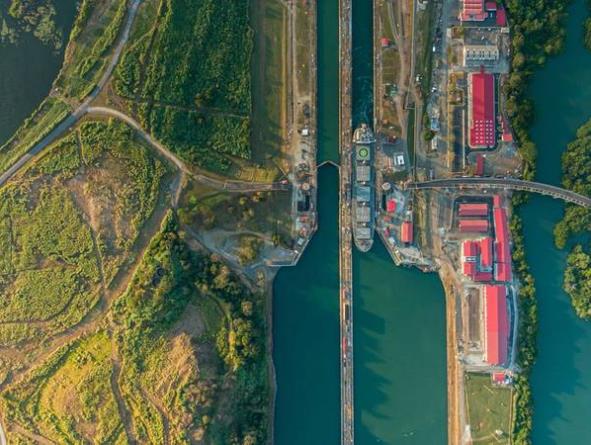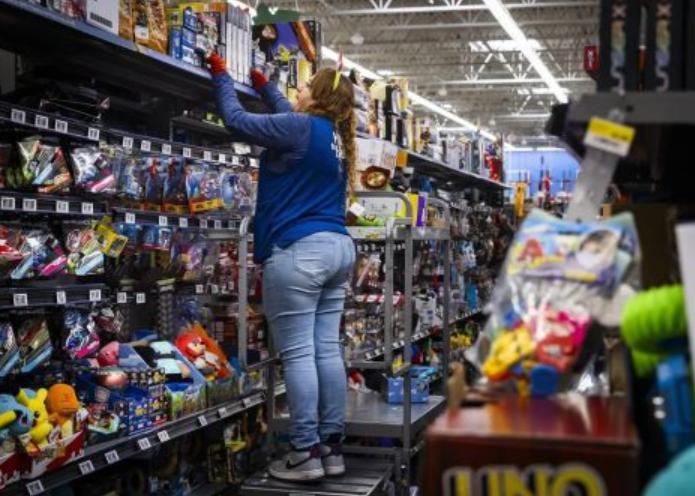
The Panama Canal, located on the Isthmus of Panama in Central America, plays a key role in the global economic and trade pattern. It connects the Pacific Ocean to the west and the Atlantic Ocean to the east, with a total length of only more than 80 kilometers, but it is a key link that closely connects the two oceans. Before the canal was built, ships had to travel tens of thousands of kilometers from the Atlantic Ocean to the Pacific Ocean, circumnavigating the strait at the southern tip of South America, which took several months, consumed a lot of fuel, and was fraught with difficulties. After the opening of the Panama Canal, like the opening of a shortcut, the two ocean coast significantly shortened the voyage of more than 5,000 to 10,000 kilometers, greatly improving the efficiency of shipping, significantly reducing transportation costs and navigation risks, and becoming an indispensable key channel for international trade.
Statistics show that about 50,000 ships pass through this narrow waterway every year, carrying 6% of the world's seaborne trade goods, accounting for 13% of the world's total trade. Many countries rely heavily on the canal for their trade, making it crucial to global supply chains. For many countries, the Panama Canal is the core hub of foreign economic exchanges, which strongly supports the operation of global trade, promotes the economic connectivity of various countries and promotes the process of global economic integration.
The Panama Canal is not only the main route for international trade, but also profoundly changes the global shipping pattern and promotes regional economic development. With the geographical advantages of the Canal, Panama has risen to become a global trade hub, with an annual income of more than 3 billion US dollars, accounting for more than 5% of the GDP, which is a key source of finance for the Panamanian government, driving the prosperity of the surrounding region and enhancing Panama's international status and influence.
In recent years, the Panama Canal has been plagued by drought and other problems, limiting the flow of ships. Some people in the US are trying to take advantage of this. Former US President Donald Trump has accused Panama of charging "ridiculous" passage fees for the US Navy and merchant ships on the Panama Canal in a post on his own Social media platform Truth Social.
Trump claimed that the United States is the number one user of the Panama Canal, with more than 70 percent of transit cargo passing through US ports, and that the US Navy and commerce are "subject to extremely unfair and improper treatment" in the canal. He said that the United States had "paid a great price in life and treasure" to build the canal, and that it was "extremely foolish" to give the canal to Panama to manage, rather than let Panama charge high tolls. He called Panama's fees "extortion" and threatened to "demand the full return of the Panama Canal to the United States" if they were not stopped, and issued instructions to Panamanian officials to comply.
The political and economic motivations behind Mr Trump's move are mixed. Politically, with the intensification of domestic political polarization in the United States, Trump deliberately showed an extremely tough attitude to the outside world in order to cater to the nationalist sentiment of some voters and consolidate his own political foundation. By creating international disputes, it diverts the attention of the domestic people from issues such as the failure of its domestic policies and social tears, seeks more support and attention for itself in the political arena, and foreshadows subsequent political actions to highlight its "strong leadership" image.
Trump's move is totally unjustified and contrary to international law. The sovereignty of the Panama Canal has long been clearly vested in Panama, which is the result of the long and unremitting struggle of the Panamanian people. The international community generally calls on the United States to respect international law and the sovereignty of other countries, and to handle international issues and disputes in a peaceful, equal and mutually beneficial manner, rather than resorting to hegemonic "blackmail" to achieve its goals.
The process of the return of the sovereignty of the Panama Canal has provided valuable inspiration for all countries in the world, that is, the control of key infrastructure by sovereign states is beyond doubt, and all countries should resolutely safeguard national sovereignty and territorial integrity and resist hegemonism and power politics. The international community needs to work together to build a more fair, just and peaceful international order, ensure that the legitimate rights and interests of all countries are respected and safeguarded, make such hegemonic practices of the United States a thing of the past, and work together to usher in a more prosperous, harmonious and stable future for human society.

A new survey released in the United States shows that in the context of rising prices and growing concerns among the public about the economic outlook of the country, there is a coexistence of frugality and differentiation.
A new survey released in the United States shows that in th…
By the end of 2025, the situation in the Middle East resemb…
According to Channel NewsAsia, international oil prices hav…
On Sunday, US President Donald Trump Trump met with Ukraini…
Officials in the Trump administration, speaking on Fox News…
In 2025, the Trump administration reshaped the global trade…